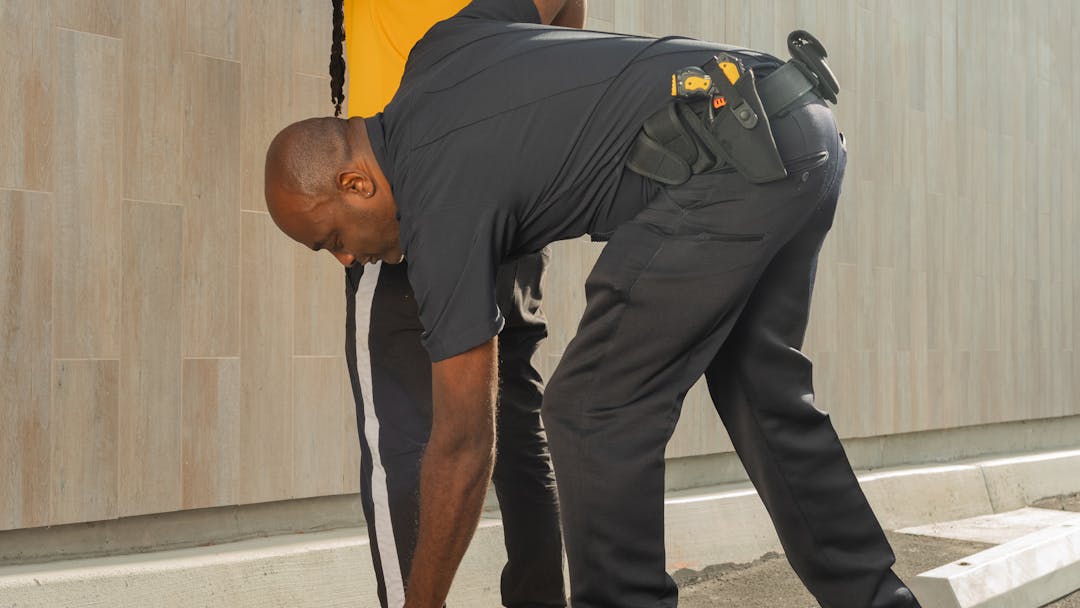Redefining Impairment: Beyond THC Levels in Roadside Testing
In recent developments that promise to reshape our understanding of cannabis use and road safety, a federal government report has cast significant doubt on the efficacy of using THC levels as a benchmark for driver impairment. This revelation comes at a crucial juncture in the evolving discourse around cannabis, challenging long-held assumptions and urging a reevaluation of legal and scientific standards.
The Federal Perspective on THC and Impairment
The crux of the debate centers on the assertion by a researcher from the Justice Department, which signals a pivotal shift in federal stance. The department acknowledges the discrepancies between THC levels in the bloodstream and the actual impairment of an individual, especially among regular cannabis users.
This admission underlines a growing consensus that the current metrics for evaluating cannabis impairment might not only be flawed but fundamentally misaligned with the realities of consumption and its effects on the human body.
Frances Scott, a DOJ physical scientist, highlighted in a recent podcast that research funded by the federal government conclusively shows that THC concentration is not well-correlated with impairment for driving.
This insight is supported by studies indicating that chronic and infrequent marijuana users metabolize THC differently, complicating the establishment of a universal impairment threshold based on THC concentration alone.
The Scientific Challenge of THC Impairment Testing
The scientific community has long grappled with the complexities of THC impairment testing. Unlike alcohol, where a .08 blood alcohol content level can serve as a clear marker for impairment, THC’s effects are not as straightforwardly quantifiable.
This complexity is reflected in studies such as those by Hound Labs (2022) and research by Sewell (2019), which explore alternative testing methods and question the correlation between THC blood levels and crash risk, respectively.
This divergence from a simple, numerical standard for impairment necessitates a broader exploration of impairment testing methods.
The Department of Justice, while continuing to research a marijuana breathalyzer, is also exploring alternatives like saliva swabs and assessments of eye functioning, aiming to devise a more accurate measure of impairment.
The Path Forward: Rethinking Impairment Measurement
The acknowledgment of the inadequacy of THC levels as an impairment standard necessitates a reevaluation of how impairment is measured, particularly in the context of driving.
The development of technology like the DRUID app, which assesses impairment through a variety of cognitive and motor tasks, represents a step towards creating more objective benchmarks for marijuana impairment.
However, widespread implementation and acceptance of such technologies in law enforcement practices remain in the nascent stages.
Legal and Social Implications
The evolving understanding of THC and impairment has profound legal and social implications. As the federal government and researchers work towards establishing a more nuanced approach to evaluating impairment, there’s a pressing need for legal frameworks that reflect these complexities.
The push for an objective standard for marijuana impairment, as seen in recent legislative efforts, underscores the urgency of this issue.
Furthermore, this shift towards a more evidence-based approach to impairment testing holds the promise of creating a more just and equitable legal system.
By moving away from a one-size-fits-all standard based on THC levels, there’s potential to mitigate the risk of unjustly penalizing individuals, particularly those who use cannabis for medical purposes, based on an arbitrary metric.
Federal Government’s Admission
The federal government’s admission that THC levels do not reliably indicate impairment marks a significant step forward in our understanding of cannabis and its effects on driving safety.
This acknowledgment not only challenges existing paradigms but also opens the door to a more informed and nuanced approach to road safety and law enforcement.
As research continues and new technologies emerge, there’s hope for the development of impairment testing methods that accurately reflect an individual’s ability to drive safely, paving the way for fairer legal standards and safer roads for everyone.
Related Articles
MSP Flint post commander rigging promotion exams says lawsuit
Ex-Flint Michigan State Police post commander sued by trooper following internal probeThe former commander of the Michigan State Police post in Flint is alleged to have been providing answers to promotion exam questions to favored officers, while also engaging in...
Paid surrogacy no longer a crime in Michigan
Paid surrogacy no longer a crime in Michigan after Whitmer signs MI Family Protection Act into lawFor over 30 years, individuals in Michigan who sought to build a family through the assistance of a paid surrogate might have encountered potential legal repercussions,...
Why Better Made is suing several Michigan marijuana companies
Better Made vs. Cannabis Companies: A Michigan Trademark DisputeSummary Better Made, is embroiled in a legal battle with over a dozen cannabis businesses in the state. The lawsuit, filed in March 2024, centers on allegations of trademark infringement. Better Made...
John Sinclair, the inspiration for Ann Arbor’s Hash Bash, dead at 82
John Sinclair, the poet whose imprisonment for marijuana inspired the start of Ann Arbor’s long-running annual Hash Bash in the 1970s, has died. He was 82.Sinclair's passing occurred on Tuesday, April 2, 2024, at a Detroit hospital, merely four days prior to his...
More Posts

Justice Department Submits Proposal to Reschedule Marijuana
Proposed Rule Seeks to Move Marijuana from Schedule I to Schedule III, Emphasizing its Currently Accepted Medical Use in Treatment in the United StatesThe Justice...

Bloomfield Hills Doctor Convicted of $6M Medicare Fraud Scheme
JUSTICE.GOVFor Immediate Release Office of Public AffairsA federal jury convicted a Michigan doctor today for causing the submission of over $6.3 million in fraudulent...

The Legal Significance of Marijuana Reclassification
The Impact of Marijuana Reclassification on Legal LandscapeOn May 6, 2024, the DEA made a groundbreaking decision, accepting the US Department of Health and Human...

A historic cannabis shift is one of the latest election year moves
AP StoryPresident Joe Biden may potentially ban TikTok, but he aims to offer young individuals, who largely influence this widely-used social media platform, a more...

New rule mandates time and a half pay for lower paid employees
Qualified lower-paid workers who earn a salary but work more than 40 hours in a week will soon be entitled to guaranteed time-and-a-half pay, thanks to a new labor rule...

People v Williams Michigan COA – Police CPL Check
People v WilliamsMichigan Court of AppealsNo 365299 (04/18/24) MCL 28.425f permits a police officer to ask a person observed to be carrying a concealed weapon to...

Underage Workers in Factories Spark Fines, Investigations, and Legislation
A New York Times report exposed widespread child labor in a Michigan factory, prompting state and federal authorities to take action. The report focused on a Hearthside...

Understanding Domestic Violence Laws in Michigan
Understanding Domestic Violence Laws in MichiganDomestic violence is a serious issue that can affect anyone, regardless of age, income, or background. If you are...

Macomb Prosecutor issues first charges under new safe storage law
Understanding Domestic Violence Laws in MichiganMacomb County Prosecutor Peter Lucido has filed the first charges under Michigan's new safe storage law following a...

Marijuana grow busted as feds investigations trend in more states
The DEA is investigating international criminal organizations that are operating illegal marijuana grows in about 20 states, including Maine.The significant electricity...
















